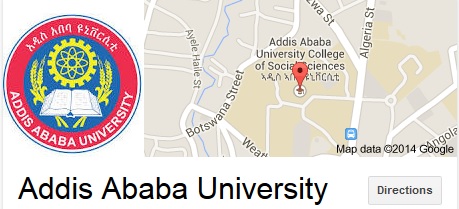SCM Overview
overview
The program unit has long been providing an undergraduate degree program in “Procurement and Supply Management”. However, the profession of Procurement and Supply Management has undergone a significant transformation over the last five decades. The accelerated rate of change in the world economy is driven by an empowered consumer; a shift in economic power toward the end of the supply chain; deregulation of key industries; globalization; and rapid change of technology make Purchasing and Supply Management a strategic function in various organizations. Such scope paradigm shift from routine operational activities to more strategic approach for the management of the Supply Chain Management as integrated whole forced the higher institutions to rethink the curriculum revision.
Thus, the Department of Procurement and Supply Management (PSM) conducted a need assessment to investigate the demand for graduates of logistics and supply chain management both in undergraduate and post graduate level. The findings of the need assessment indicated that the existing curriculum limit graduates of the Department to be engaged only in traditional and routine buying activities. The syllabus fails to expose students to the strategic dimensions of transport, inventory, warehousing, managing the transformation process, industrial packaging, materials handling, and distribution in particular and the logistics and supply chain functions as an integrated whole. The result clearly indicated the presence of knowledge gap in areas of logistics and supply chain management.
Moreover, the globalization of businesses, the implementation of several projects both by private and government sectors, introduction of dry ports, as well as the government’s focus on logistics not only for implementation of the five year “Growth and Transformation Plan” but also for elimination of resource wastages necessitate workforce with knowledge, skill and attitude in the field of logistics and supply chain management.
Therefore, the undergraduate program of Logistics and Supply Chain Management was started during the first semester of the academic year of 2005 E.C., following the national program of modularization and harmonization of curriculums for the undergraduate programs of Ethiopian Higher Education Institutions. During the series of modularization and harmonization processes, new courses were incorporated into the curriculum to increase the breadth and depth of the knowledge and skills that students acquire commensurate with the degree to be awarded.
The program is established with the mission of producing qualified and competent people in the area of Logistics and Supply chain Management. The need for the program is apparent in terms of AAU’s strategic plan as it intends to generate competent people who will assist organizations and institutions in properly managing their chains so that they stay competitive. It is also in line with the national priority agendas as it aims to produce graduates who can uplift the economy by properly managing the networks or chains a particular organization is in. There is no problem with regard to demand for the products of the program as revealed in terms of the response obtained from stakeholders via the various symposiums undertaken and the vacancies issued each day from varieties of organizations.
Graduate Profile
Upon completion of the program, the graduates will be able to perform the following activities:
- Work as purchase officer, inventory controller, or stores and receiving manager, logistics manager, and supply chain manager;
- Work as transportation manager;
- Manage port operations, transit shipping and multimodal operation;
- Plan and organize logistics management functions;
- Design, plan, and control supply chain operations; plan & manage demand and supply in a supply chain;
- Identify potential suppliers; develop criteria for selection of suppliers; supervise, follow-up, and expedite purchase; design performance evaluation of suppliers; and develop long term supplier relationships;
- Control and manage receiving and inspection activities; develop store classification and codification of systems;
- Determine economic order quantities, maximum stock levels, safety stock levels, and keep store ledger account; determine values of materials issued and works for optimal utilization of material resources;
- Negotiate on projects/purchase contracts and manage purchase contracts;
- Carry out custom clearing operations;
- Serve as project leaders, researchers, and consultants in logistic and supply chain management;
- Take the initiative of establishing their own business;
- Professionally manage materials within both for profit and for non -profit organizations;
- Coordinate the activities of supply chain management;
- Carry out international logistics operations;
- Perform and process tender; and
- Have a comprehensive and systematic understanding of research techniques and methodologies applicable to logistics and supply chain management theory.







